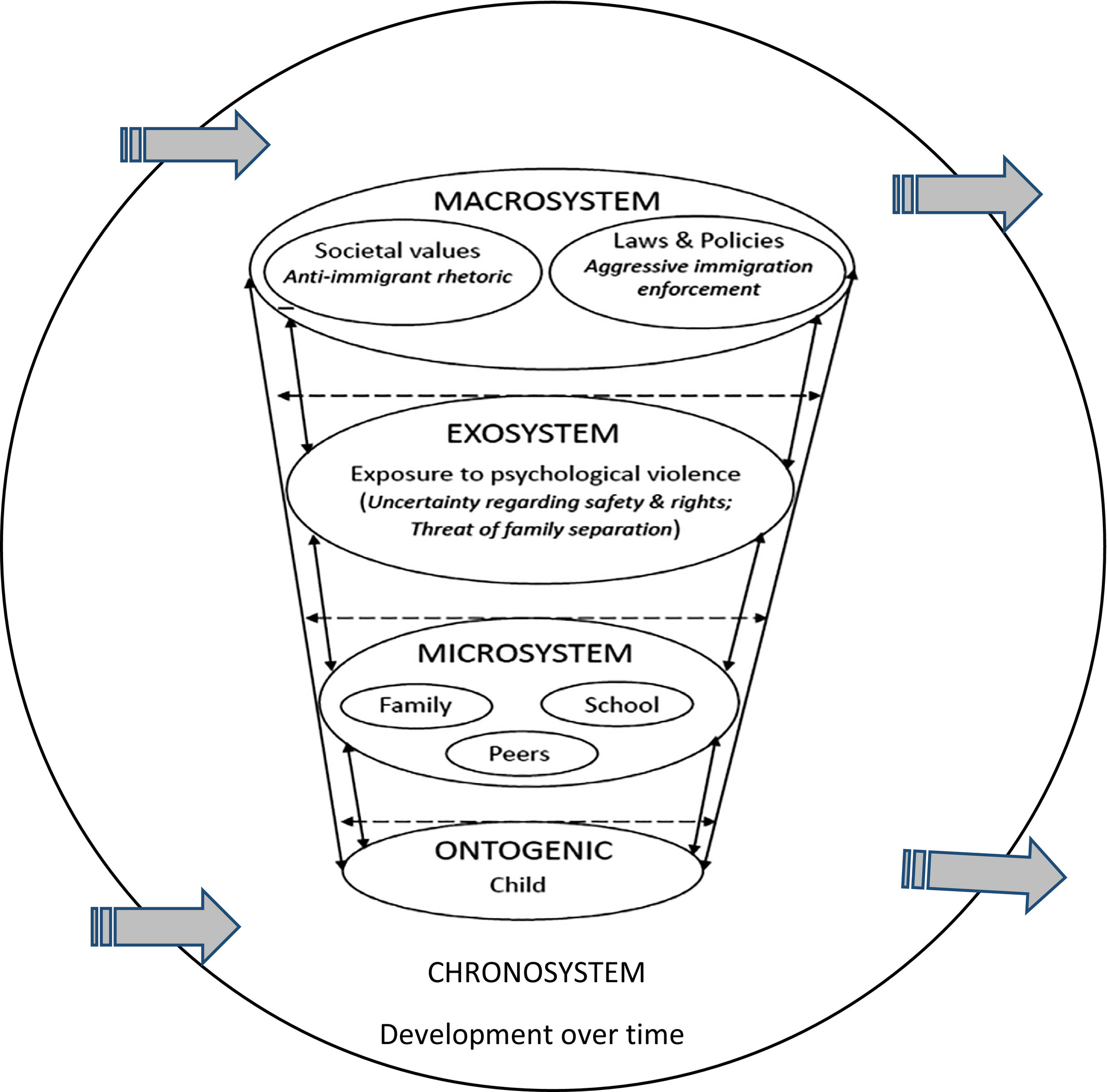
Share On Social!
Latinos make up nearly 18% of the U.S. population and are the largest ethnic minority.
Even 1 in 4 U.S. kids is Latino, mostly U.S.-born citizens.
Yet with the current political climate of inflammatory rhetoric, parental separation, and tear-gassing of migrants along the border, many Latinos feel the burden of an anti-immigrant climate, according to a research report.
“Current discourse about immigrants and immigration tends to be dehumanizing,” Dr. R. Gabriela Barajas-Gonzalez, assistant professor of Population Health at NYU’s School of Medicine and lead author of the study, told HuffPost.
“Dehumanization is never healthy.”
The Alarming Study Findings
This appalling rhetoric is harmful for Latinos, regardless of their immigration status, according to the new study.
Barajas-Gonzalez and her team found that stress and emotional discomfort was prevalent among those who belonged to mixed-status families, which have at least one citizen or legal immigrant child and at least one undocumented parent.

“For some children, the stigma associated with being from an immigrant family, experiences with discrimination and increased consciousness of legal status is marked by fear, hyperawareness and hypervigilance.”
Children with the above symptoms that can be linked to post-traumatic stress disorder and anxiety tend to be greatly tense. This affects their ability to focus in school, thus making it difficult to thrive socially, academically, and emotionally.
Anti-Immigrant Rhetoric & Health
It is known that Latino families lack access to quality healthcare.
Additionally, Latinos perform poorer on most measures of access to and utilization of their health care than whites, due to reasons like citizenship status, language, socioeconomic status, and a lack of awareness of insurance/ the Affordable Care Act.
In rural, borderland areas, foreign-born US immigrants are plagued by poverty, stress, discrimination, and lack of access to quality healthcare.
Children of migrant workers, who are mostly Latino, grow up exposed to a high level of trauma, such as neglect, abuse, poverty, and low access to healthy food and safe places to play.
“We know that deportations and family separations at the border are incredibly disruptive and traumatic to youth and their families. The detrimental impacts of family separations on child development and family systems are serious and long-lasting,” Dr. Laura Wray-Lake, a UCLA associate professor who has studied Latinos teens’ reactions to immigration policies under President Trump, told HuffPost.
“What we’re also coming to understand is that even for youth and families who are not directly threatened by these deportation or family separation policies, the policy climate is creating a more hostile and unsafe environment.”
What to do?
In order to improve immigrant families’ health, Latino or not, it is vital to speak to the harsh policies and rhetoric as the root of the problem.
Barajas-Gonzalez’s study urge “cutting down the current backlog of more than 700,000 applications for citizenship and passing legislation to provide a pathway to citizenship for undocumented immigrants, including parents of U.S.-born children.”
Others, like Minerva Perez are stepping up to help Latinos.
Perez, leader of Organizacion Latino-Americana of Eastern Long Island (OLA) in New York, promotes cultural, social, economic, and educational development for Latino communities.
She created three-hour workshops—called Círculos de Fuerza, or Circles of Strength—to enable Latino families to express their stress and fears in English or Spanish, and lean on each other for support, all with guidance from licensed mental health professionals.
“People can feel good about whatever they’re sharing in this room,” Perez said. “That allows people to take some of the air out of that level of stress and fear and emotional isolation.”
Explore More:
Embracing ImmigrantsBy The Numbers
44
million
immigrants live in the United States



